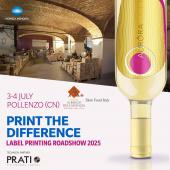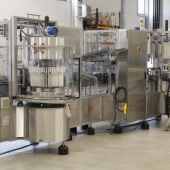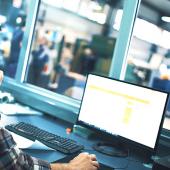Software in the era of 4.0
From the “Forum on the evolution of software technologies in industry 4.0”, importance, meanings, advantages of planning that supports the essential digital transformation of the industrial world. By Maurizio Cacciamani
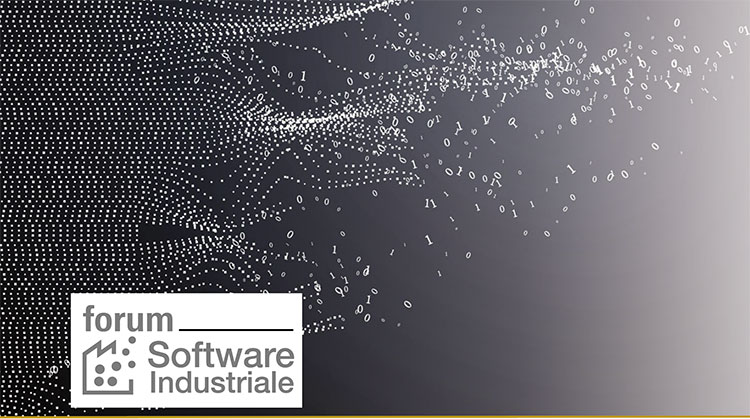
Milan, 6 February. Once again, the effective collaboration between two realities - ANIE Automazione and Messe Frankfurt Italia, organizers of SPS Italia - has created a successful undertaking, able to stimulate the diffusion of technical culture related to new technologies (IOT, Industry 4.0, Industrial software, etc.).
Marco Vecchio (ANIE Automation director) and Donald Vich (AD Messe Frankfurt Italy) remarked on it at the opening of the day, speaking to about 800 participants, technicians and managers of Italian companies.
The president of ANIE Automation, Fabrizio Scovenna then stressed the importance of software in automation as an «enabling layer to implement digital transformation of companies, which enables them to move from rigid production systems to flexible» without however neglecting the problem of cybersecurity, which is vital for companies.
«There are three fundamental points to successfully face the challenge of new technologies: ambition, agility and competence ... Qualities that should not be missing in the good manage “, who concluded by hinting at the 2018 results of the industrial automation sector + 8.3% on 2017 with a slowdown in the final part of the year; in January, unfortunately, some clouds appeared over the market.
Simulate, produce, maintain and create new products
The technical works of the Forum were opened with speeches by Fabio Massimo Marchetti (president of the Industrial Software Workgroup of Anie Automazione) and by Elio Catania (President of Confindustria Digitale) who spoke about the software as an enabling layer in the industrial digital transformation and convergence of the IT-OT worlds”.
• Marchetti stressed that incentives are only one of the points to be taken into account in the innovation plans and not even the most important, while the software is one of the most significant as it is taken into account in 5 out of 10 incentive points.
«Industry 4.0 is like a puzzle that aggregates multiple technologies, hence also software. And it is a long-term continuous process», Marchetti recalled, listing the multiple advantages: «With Smart Manufacturing we can anticipate the phenomena (predictive maintenance), with Virtual Manufacturing thanks to the digital twins, one functionally simulates the system or the machine in the design phase, well before having installed it; with Smart Product you can create new products and services tailored to the customer». In conclusion ... «industrial software is not an opportunity but a necessity!».
Innovate step by step, but always update
• Elio Catania noted that, unfortunately, in Italy many have not noticed the great transformation underway, so many resources available at European level have not been used. Hence the delay incurred by Italian industry. Today, however, what was once very expensive is now really cheap: «With a few cents, an infinity of data is transferred, that though needs to be elaborated and evaluated. Hence the development of Artificial Intelligence that helps and will help more and more both in generating algorithms and in processing data, »said Catania, who also gave some practical tips: constantly requalify, immediately integrate the machines and systems present in the factory (CNC, robot, SW ...), use the Digital Innovation Hubs (22 in Italy) and the Nation Competence Centers, which are preparing to support the digital transformation.
Calculate the return on investment
The morning plenary session of the forum ended with the presentation of professors Riccardo Giannetti (UNI Pisa), Mario Rapaccini (UNI Florence) and Lino Cinquini (Scuola Superiore S.Anna University of Pisa) who illustrated the software developed jointly to estimate the ROI of an industrial software. The software is being tested in some companies of the ANIE Automation group. Those interested in joining the test group can contact the developers directly.
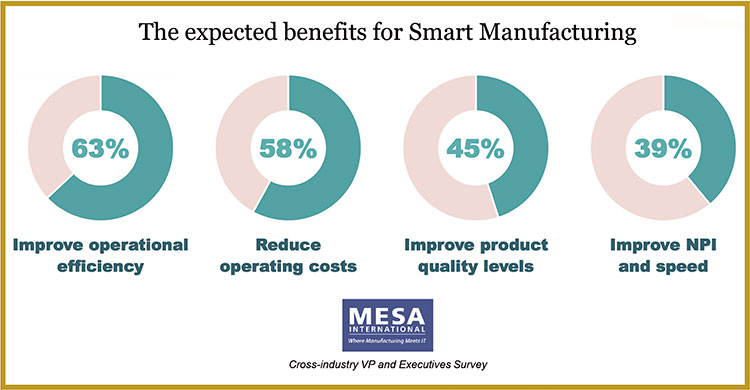
The thematic areas
23 exhibitors, four technology sessions (two dedicated to smart manufacturing, one to cybersecurity and one to virtual manufacturing and smart product), as many as 22 reports presented, formed the backbone of the meeting.
In the thematic area of Smart manufacturing, also with demos and descriptions of application cases of the technologies that enable the realisation of MES (Manufacturing Execution Systems) and MOM (Manufacturing Operations Management) systems, cloud systems, Edge technologies, Industrial IoT and Artificial intelligence were discussed.
The second issue addressed, that of Industrial Cyber Security, has highlighted how the increasing opening of manufacturing systems and the introduction of hyper-connected devices has increased the exposure of industrial control systems to cyber threats.
Introduced by the Clusit association (which brings together IT security experts), the speakers presented the main technological means for the protection of facilities and people.
In the session dedicated to Virtual Manufacturing and Smart Products the benefits offered by the new product development paradigms were discussed, from PLM to digital twin (for the simulation of plants during the design), and how to make the products intelligent, thus enabling new business models based on services related to the use of the product (the so-called servitization).
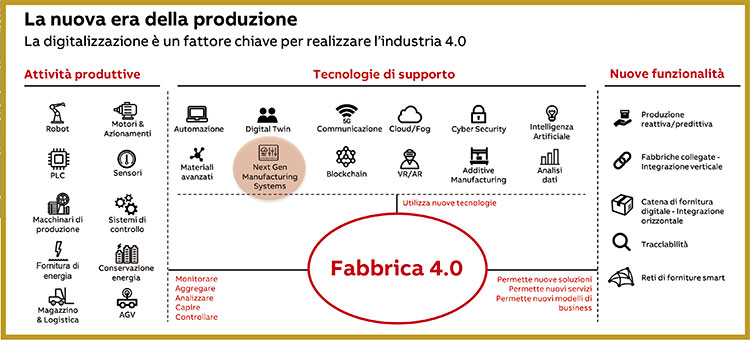
Develop new smart products thanks to smart machines
Coordinated by Mauro Bellini (Director of Industry4business) the interesting round table was held with the theme “From smart machines to smart products: What scenarios for infrastructures and solutions” that ended the event on 6 February. • Luca Flecchia (Project Manager - Data Driven Innovation at P4I - Partners4Innovation) underlined how IOT and AI (Artificial Intelligence) - up to 3 years ago subjects of exclusive industry relevance - are now popular thanks to smartphones, smart watches, domotics (devices like alexa and google home). According to Gartner, in 2020 only 1 $ will be spent to transmit data and there will be 50 billion interconnected devices (according to Cisco).
It is expected that, next year, 110 G$ (+ 7.3%) will be invested in Italy: the smart metering that has to reduce the very high maintenance costs will draw this on. Significant investments in smart logistics are also to be noted. Since it is not enough to collect information but we must also transform it into useful data, here is the development of Intelligent Data Processing (1.4 G$ of investments by banks and industry).
• For Calogero Maria Oddo (professor of Biorobotica - Scuola Superiore S. Anna di Pisa) the robot will continue to replace man in degrading and dangerous work. Three lines of development: collaborative robotics, wearable and implantable robotics (ie prosthetics in the medical field). Until a few years ago robots were caged for security reasons, now the collaborative robots are “companions” of work.
IFR is therefore a growth factor for productivity and employment: any taxes that, it is rumoured, could be introduced would cause damage to Italy as a large producer of operating machines.
• Mario Rapaccini (professor of economic-management Engineering Department of Engineering Uni Florence) illustrated how servitization is used: a product is no longer offered or sold alone, but is delivered in combination with a service. In this area, compared to other nations, Italy is lagging behind, as the size of companies is small.
In the research conducted on ANIE companies, Rapaccini underlined how 27% of the sample examined has large dimensions, 35% are part of international groups, and 75% are still “product centric”. The comforting fact is that, in the sample, the sale of ad hoc services grows more than traditional products, but only to direct customers, while towards the base installed by the competition it is only in 3.5 cases out of 7.
• «In 20 years, the software has changed enormously» said Mauro Galano (representative of the Industrial Workgroup Software of ANIE Automation) «and the SCADA are trying to simplify the transfer of data to IT, which, for its part, must evolve the software in order to manage both data and collection devices that exploit the existing sensors; sensors that are easy and simple to manage. Another trend is to have intelligent hardware configured with integrated diagnostics. Still on the subject of integration, it should be noted the need to integrate the IOT with augmented reality to allow maintenance workers quick and safe intervention».
• Still Flecchia stressed how the competence of those who work is essential to be able to use data at every level. One of the biggest problems today is the lack of Data Scientists, who are few and expensive. How to solve the problem? Creating heterogeneous work teams, in order to have the same expertise with more people, who may already be working in the company today.
• «The university works to anticipate the times and to transfer innovation to the industry» noted Oddo. «Currently we are working on technology that helps to interpret data coming from the field on new event driven paradigms that work like our nervous system (thus easing the occupation of networks) and on new architectures of industrial networks».
• But what can the university do for servitization? For Rapaccini the Competence Centers are the skeleton for transferring skills to industry. To facilitate access it would be useful to experiment with rates based on the performance required by companies.
• In his final talk, Galano recalled how the development of smart products clashes with the problem of the seniority of the Italian machine yard (over 50% of companies have machines that are more than 20 years old, source Sole 24 Ore). Installing new intelligent machines is a problem of skills by all those working in the company and updating can be a serious obstacle for those who do not master the subject.
In this field school and therefore also university must do its part, in order to train people with cross competences not only for the IT part (purely computer knowledge) but also for the OT (PLC and SCADA programs) part.
«In terms of software - concluded Galano - there is still a lot of work to do!».
|
SPS Italy: technological forums Itinerant events in the districts and regions to get in touch with companies, local institutions and share experiences of innovation. This is the goal of the appreciated meetings organized by Messe Frankfurt Italia in an approach to the SPS Italia event, this year scheduled for May 28 to 30 in Parma, dedicated to the digital, intelligent and flexible industry. On February 6 in Milan, at the National Museum of Science and Technology, the Forum on the evolution of software technologies in industry 4.0 was held, promoted by ANIE Automation Software Group, which saw the participation of over 800 people which we report on extensively here. Among the other technology forums scheduled for May, we mention “Pharma 4.0: excellent processes and enabling technologies for the future of Italian pharmaceuticals”(26 February, Milan) and the conference entitled “Packaging 4.0: production efficiency at the service of mass customization”, dedicated to the evolution of packaging and wrapping technologies. Organized in collaboration with Ipack-Ima and Ucima, it is scheduled for March 20 at the Golinelli Foundation in Bologna. |













